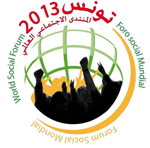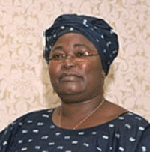Social Watch News
Published on Wed, 2013-03-27 15:21
Since joining the Euro in 1999, Portugal has had the lowest growth in the Eurozone. Between 2001 and 2007 Portugal experienced only 1.1% average annual growth. The government deficit was -6.5% of GDP in 2005 and it was -3.1% in 2007. When the global financial crisis occurred, a drop in tax revenues and the money allocation to support commercial banks, led to further increases in the government deficit and in general gross debt. At 108.1% in 2011, Portugal had the third highest general government gross debt to GDP ratio in Europe (EU27), behind only Greece and Italy (Eurostat, 2012a). As debt continued to grow investors were unwilling to lend and in May 2011 Portugal was the third country to seek a ‘bailout’ from the EU-ECB-IMF troika. The austerity measures accorded between the Portuguese Government and troika, are responsible for major setbacks. Many basic economic and social rights that were guaranteed are now being either questioned or neglected. In this scenario, the development cooperation public policy that contributed significantly to the achievement of the Millennium Development Goals (MDG) also suffered a major negative shift. The policy response to the 2008 financial crisis, was the implementation of a progressive stringent set of austerity measures: freezing of nearly all insurance benefits and pensions, reducing the pensions tax allowance, reduction in means-tested unemployment assistance, family benefit and social assistance, increase in standard VAT rate (from 20% to 23%) including increasing the VAT on natural gas and electricity to standard rate, increase in income tax rates and reductions of tax credits, public sector pay cuts (up to 10%), reductions in numbers of employees in central Government and across public administration generally. |
Published on Wed, 2013-03-27 15:01
The scale of resource needs for the post-2015 and sustainable development agendas, although yet to be fully quantified, provides a serious challenge for aligning expectations of an ambitious post-2015 agenda with the implementation of that agenda. To bridge this gap, it is crucial that Africa, hitherto considered to be significantly dependent on external resources for financing its development, puts forward its vision of how the financing issue should be addressed. |
Published on Wed, 2013-03-27 14:29
African thinkers, parliamentarians and civil society organisations who gathered in Midrand, South Africa, hosted by the Pan African Parliament, articulated what is emerging as a growing consensus in various fora taking place on the continent: ‘the building blocks of development’ have to be front and centre in the post-2015 discussions; and the imperative to underpin a developmental/structural transformation has to inform the approach taken to governance (developmental governance), financing and the global developmental partnerships, as well as the socio-economic development goals and targets. |
| Source: . Published on Fri, 2013-03-22 00:00 |
| Published on Thu, 2013-03-21 22:03 |
Published on Thu, 2013-03-21 12:18
Members of the Reflection Group, of which Social Watch is part, launched a draft Reflection Paper on Universal Sustainability Goals for a Post-2015 Agenda prepared as a contribution to the Civil Society Conference on the Post-2015 Agenda that started this week in Bonn. The paper pointed that the debates on an agenda for international co-operation and development beyond 2015 offer the opportunity to (re-)address in a holistic manner well-being and justice in societies. Given the economic, social and ecological challenges in the world, this is urgently needed. |
Published on Thu, 2013-03-21 12:11
Social Watch will organize -together with different partners- a number of meetings during the World Social Forum 2013 to be held March 26 -29 in Tunisia. These meetings will be an opportunity to review and reconsider new challenges of the Post 2015 framework and the challenges the Arab countries are going through after the Arab Spring. |
Published on Thu, 2013-03-21 11:53
Civil Society Organizations issued a statement that outlines the priorities and recommendations they have identified for the post-2015 development framework. These build on the new emerging challenges as well as the lessons learnt from the initial MDGs process’ failures and gaps. The CSO declaration was released during the Arab Regional Consultation on the post-2015 development agenda that was held on March 14, 2013, in Beirut, Lebanon. The meeting provided an opportunity to gather the views of civil society coalitions and key UN agencies the region. |
Published on Thu, 2013-03-21 11:11
Dr. Emily Sikazwe, former SW Coordinating Committee co-chair, was selected as exceptional women to celebrate International Women’s Day and also to launch VIDEA’s 35 profiles of exceptional women. |
| Published on Fri, 2013-03-15 11:48 |
SUSCRIBE TO OUR NEWSLETTER










